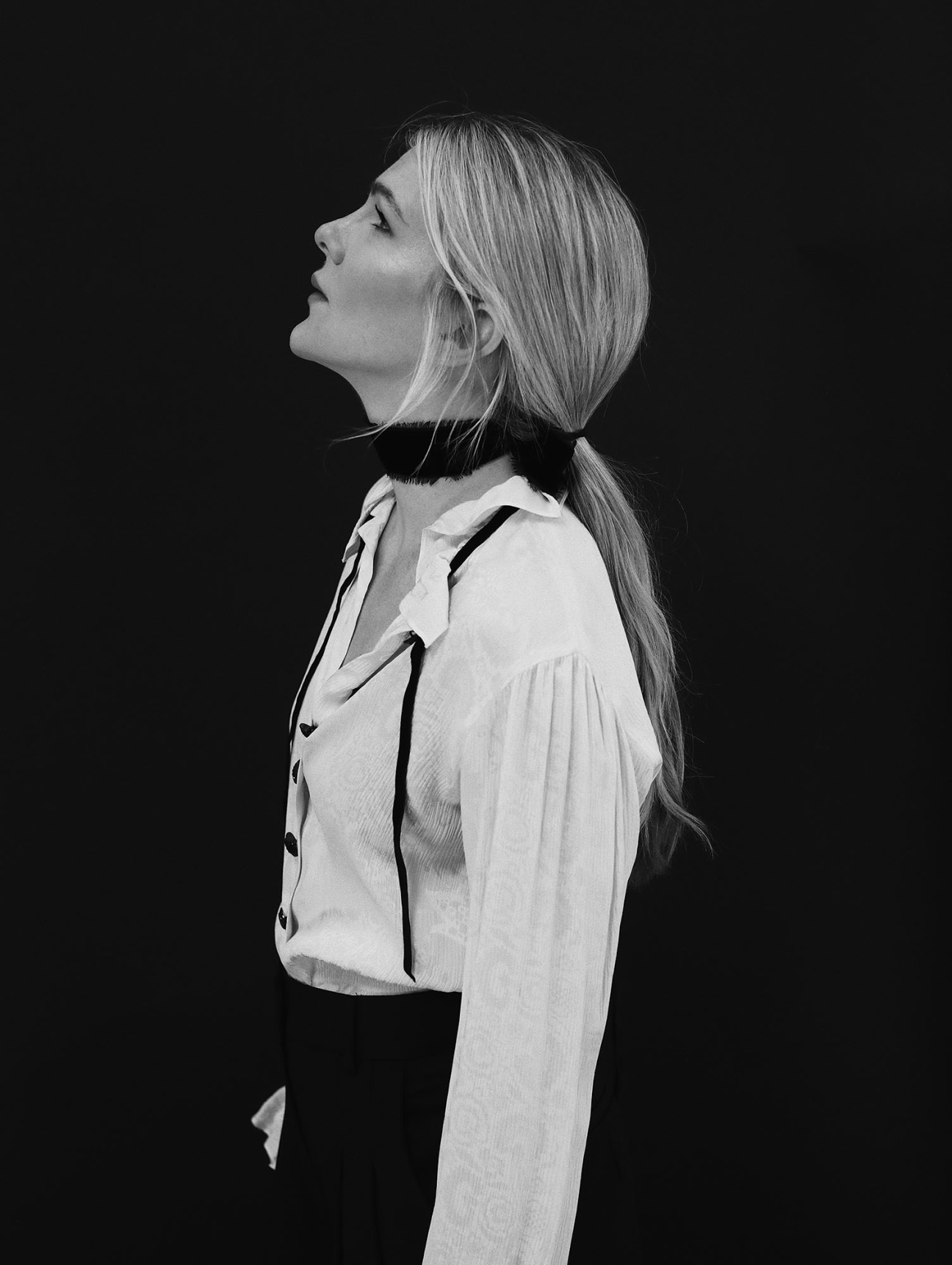
Lily Rabe has played a demon-possessed nun in Ryan Murphy’s American Horror Story, former Congresswoman Liz Cheney in Adam McKay’s Vice, and Shakespeare’s protagonist in the Broadway production of The Merchant of Venice. Now, she's adding yet another role to her extensive resume: director.
In the film adaptation of Chuck Klosterman’s novel, Downtown Owl, which premiered at the Tribeca Festival last year and was released on streaming last month, Rabe serves as both director (alongside her husband, actor and playwright Hamish Linklater) and lead. She plays Julia, a high school English teacher who moves to the fictional town of Owl, North Dakota, days before a blizzard. (Rabe is reprising the role after lending her talents to the 2008 audiobook.)
Ed Harris, who stars opposite Rabe in the film, plays Horace Jones. He describes the character as “a simple man who's doing the best he can in the world.” The Oscar-nominated actor made his own directorial debut back in 2000 with the film Pollock—a passion project for Harris, who, similarly to Rabe, fell in love with the text first, in this case a 1989 biography of Jackson Pollock by Steven Naifeh and Gregory White Smith.
Just in time for the film’s widespread debut, the two multihyphenates sat down with CULTURED to discuss the project’s origins, balancing acting and directing, and how “special” the cutting room can be.
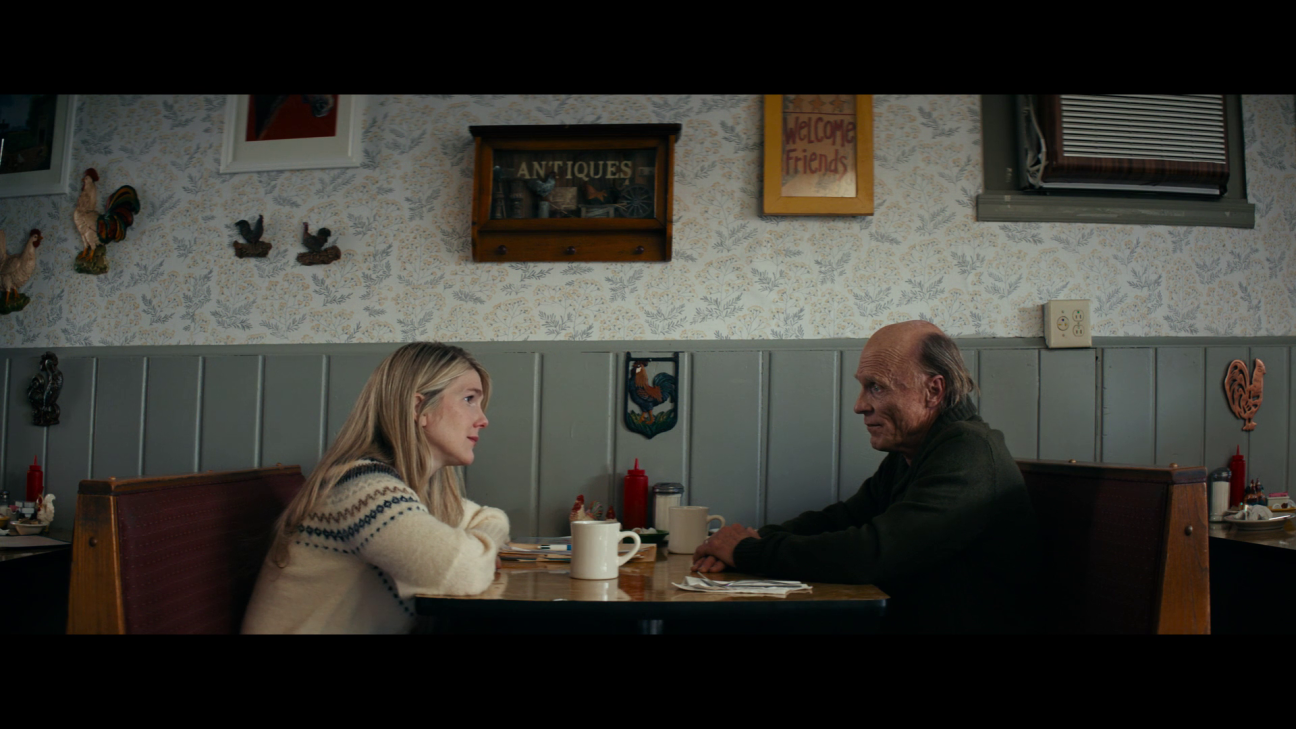
Ed Harris: I was curious if you and Hamish had thought about directing together. How did it all begin?
Lily Rabe: Well, it was sort of incremental and every step of it took me by surprise. The short answer is no, we hadn't thought about these things until suddenly they landed in our lap. I initially tried to option the book before I even had ever met Hamish. I was trying to make an extra buck and I started doing audio books and then I did this one and it was the first time I really thought, Gosh, someone should turn this into a movie.
I asked my then-agent, “How do you pursue the rights? How do you do something like this?” I wrote to Chuck's lawyer. Eventually I got to Chuck; the rights weren't available. But then I just sent him a sort of love letter saying why I thought it should be a movie and that I wished him the best of luck with it—and if, for whatever reason, the Hollywood Gods didn't get that version of the movie made and it became available, to keep me in mind.
A couple of years later, I had an email in my inbox from Chuck saying, “Hi, man. I've been following your career, really big fan. I really think you should play the part. If you're still interested in this, I'll sell it to you for a dollar. If you're not, I understand and good luck with your career. Your fan, Chuck.” It just felt like this moment of unexpected opportunity and that I would be a wimp if I didn't try to walk through the door in some way. And I don't ever want to be a wimp.
Harris: This character, she's pretty out there and this very interesting woman. What was it about her that that you felt like, “I really do want to play this gal”? Was it one aspect of her that excited you or scared you?
Rabe: She was completely scary to me and in the book, she's in her early 20s, which I was when I did the audio book. Time was going by and I was no longer in my early 20s, and at one point I did say to Chuck, “I love this thing so much. If you think someone else should play the part…” And he said, “No, no, no, it has to be you, It has nothing to do with her age. It has to be you.”
She's terrifying because to me it's like she's inside out. She doesn't have a total awareness of how to be, and she's curious. Her compass is off but she just wants to get to whatever it is that is real about her life. I think that's something that felt so profound and identifiable and personal to me. That's why I wanted to play her.
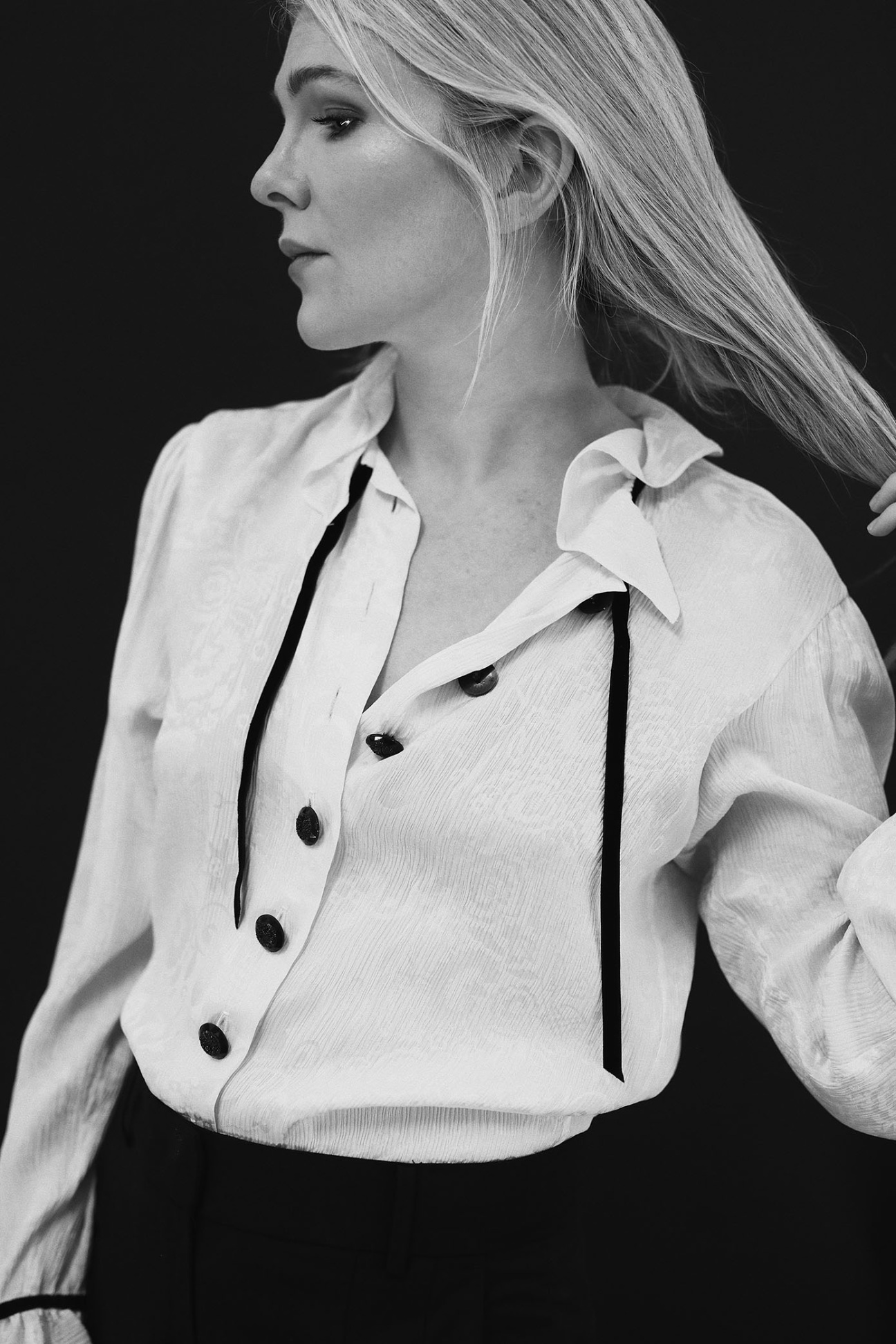
Harris: You're playing the main character, obviously. So you've got tons of things on your mind other than directing. Did you feel like a director? Did you feel like an actor? Did you feel both?
Rabe: You know something about it. You didn't have a co-director when you did it.
Harris: No. I don't ever remember the two of you really going off to the side and discussing some shots or working out something. It seemed like things were moving along pretty smoothly.
Rabe: You know, we were just talking about that yesterday, that we never really had to huddle up about things. But it was actually because in so many ways we are able to share a brain. We're very different, but we do share something that is so profound in the lens through which we see things. We were at this symposium at USC talking about the movie and someone asked a question about working with actors, which of course is the most divine thing. But after just a couple of days, it wasn't the same with every actor.
It was so clear to us, with this actor, I think it's better when the notes come from you, or with this actor, it's better when the notes come from me, or come from us together. But I don't even know that we ever actually talked about it. We just felt it and maybe from all of those years of playing opposite each other in all that Shakespeare, raising children together, whatever that muscle is, whatever that umbilical cord is, we sort of share. It really served us in the directing.
Harris: And how about in the cutting room? Were you both working with the editor? Did you take turns?
Rabe: The first week of editing, when we were doing our cut, he was shooting. I can't remember how many days, but I wanna say maybe four or five days with the editor alone after the assembly. I was shooting a little bit so I missed some days, so we had a little bit of a show-and-tell experience. But the mind melds continued [during] the edit and we talked about how wonderful that initial period in the editing room is. It was just so quiet and so dark and there was no one around.
Harris: I know, it's pretty special in there.
Rabe: It's so special. And you told me how special it was gonna be, but it was more special than I imagined it would be.
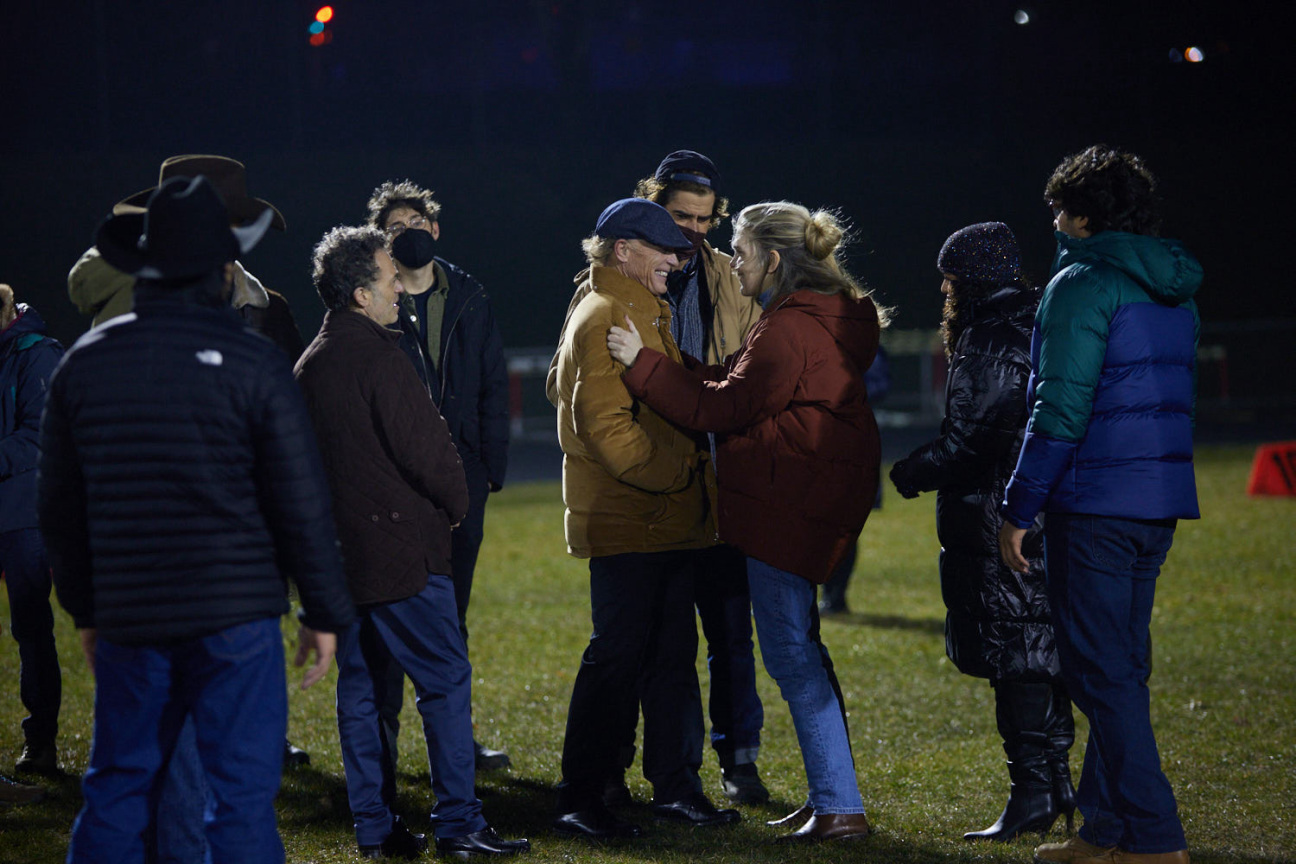
Harris: Did you enjoy editing your own performance? I think [it] is kind of a treat because a lot of times you do a film and they go, “What about that? I thought that was a bit better.”
Rabe: I did like it. There are moments when you're confronted with things that are like, Gosh, I didn't know from that angle, my face looked like that. That's so wild. But in the ways that matter, I did love it—love isn't the right word, but I found it very rewarding.
Harris: Did you guys have pretty much a total agreement on casting?
Rabe: Yeah. Sending the script to you and your response to it… When I think of these great moments along the way, that's certainly very prominent. Casting the kids who auditioned, watching those tapes—because a lot of those kids were local—that was such a remarkable thing, having been on the other side for so long. I really wanted to go say to my past actor self, “Sometimes when they tell you that there's actually nothing you could have done and your audition couldn't have been better…”
Harris: “And we still don't want you for the part.”
Rabe: You wanna think you can do anything and I believe that many actors can do almost anything. It was that amazing thing of watching certain actors come in with something that taught you about the part that you didn't even know existed until you saw them say the words.
Harris: Something innate in all of us that you're not gonna change.
Rabe: It’s just weird. But there was relief in having that experience from the other side.
Harris: Are you guys thinking of doing something else together?
Rabe: Yeah, we are. We’re gonna knock on your door first.

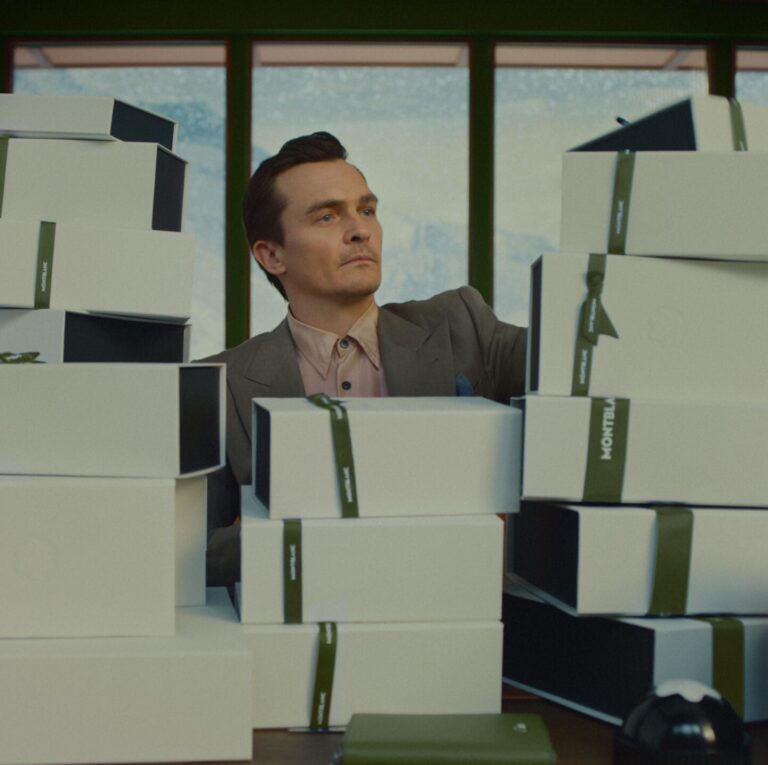
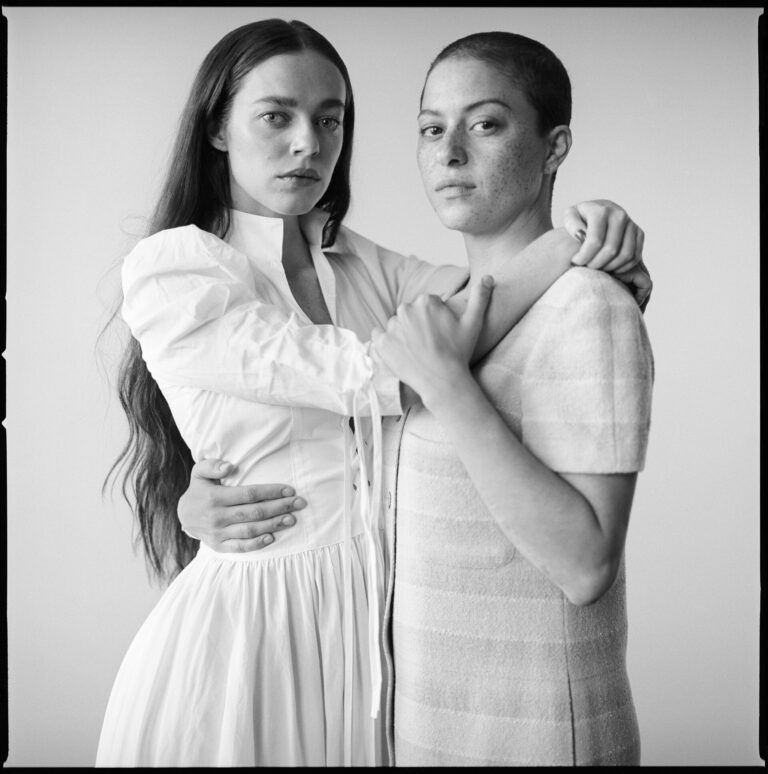
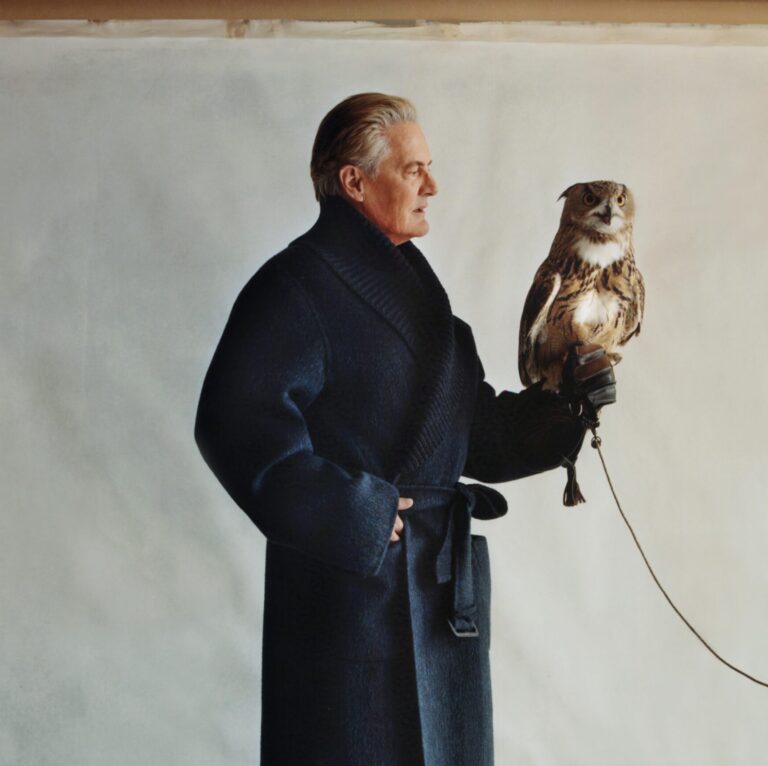
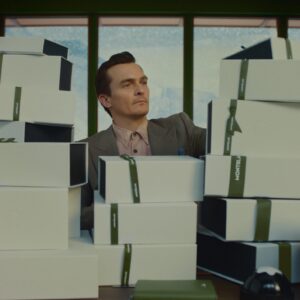
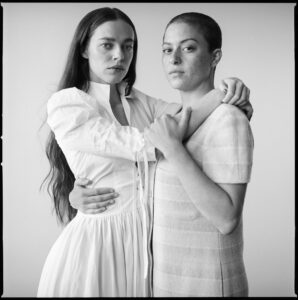
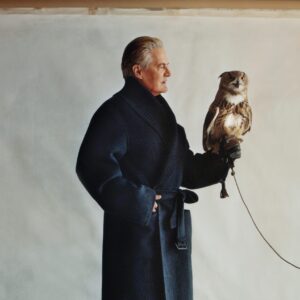



 in your life?
in your life?

